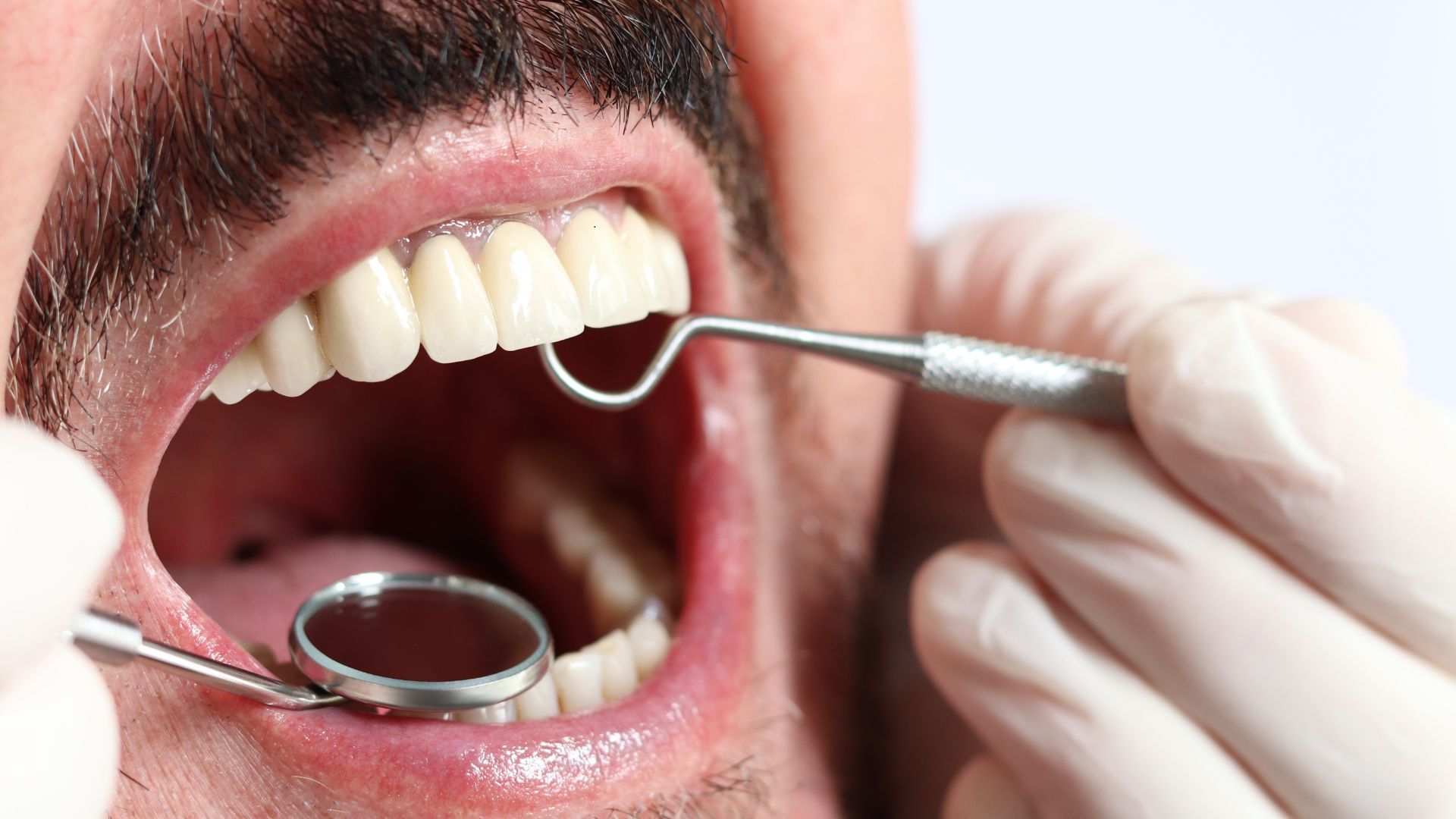Why Regular Dental Check-Ups Matter for Your Health
If you think dental care is only about preventing cavities or keeping your smile bright, it’s time to think again. Your oral health is an important part of your overall healthcare routine and looking after it can have benefits far beyond your mouth.
Skipping the dentist has implications that are much wider than just your smile. Research shows that oral health is linked to problems such as heart disease, diabetes, respiratory infections, and even pregnancy complications. Looking after your teeth could be one of the simplest ways to look after your whole body.
The Link Between Your Teeth and Overall Health
The mouth naturally contains bacteria, lots of which are healthy, but some can cause disease. When you practise good oral hygiene, including regular brushing, flossing and routine check-ups, you keep the bad bacteria under control. Failing to do so allows these harmful bacteria to multiply, resulting in harmful inflammation and gum disease (gingivitis) down the line.
Oral health and physical health are so closely linked because these bad bacteria can enter the bloodstream, travelling to other parts of the body and potentially triggering or worsening systemic health problems.
Gum Disease and its Link to Heart Disease
Gum disease, also known as periodontal disease, has been linked to an increased risk of heart disease. Bacteria from infected gums can enter the bloodstream and contribute to fatty buildup in the arteries. This can cause inflammation in blood vessel walls, restricting blood flow and increasing the chance of a blockage.
The University of Aberdeen reports that a team led by Professor Karolin Hijazi studied 160 heart attack patients admitted to Aberdeen Royal Infirmary, and found that about two-thirds had a severe gum infection. The team also found that those with higher P. gingivalis (oral bacteria associated with gum disease) levels in their mouths tended to have more damage to their heart.
Maintaining good dental health can be an important part of protecting cardiovascular health. Regular dental check-ups and cleanings remove the plaque and tartar that feed gum disease, reducing this inflammatory stress on your body.
Why Managing Your Diabetes Includes Looking After Your Teeth
The link between oral health and diabetes is two-way. Poor oral health can make blood sugar levels harder to control, and high blood sugar can increase the risk of gum infections.
Factors including reduced saliva production, increased glucose in saliva and slower healing all contribute to the susceptibility of diabetics to oral health problems like gum disease and cavities. On the other hand, when gum disease develops, it creates inflammation that can affect how your body processes insulin.
For someone living with diabetes, these factors can make it more challenging to keep glucose within a healthy range. That’s why dental health should be part of every diabetes management plan. Brushing twice daily, flossing, and regular visits to the dentist can help break this cycle.
Pregnancy Complications Tied to Poor Oral Health
During pregnancy, the human body goes through a huge number of changes, including in the mouth. Hormonal shifts can increase sensitivity and impact saliva production and oral pH levels, causing gingivitis, enamel erosion and pregnancy tumours.
Gum disease during pregnancy has been linked to an increased risk of preterm birth and low birth weight, so maintaining good oral health throughout is critical.
Contact your dentist in the early stages of pregnancy so that they can provide personalised advice and catch any issues while they’re still treatable.
Oral Health and Respiratory Conditions
Bad oral health can also be linked to some respiratory conditions. Aspiration of bacteria can occur from the mouth to the lungs, resulting in infections such as pneumonia, especially in older patients.
Keeping the mouth clean and free from infection can help reduce this risk, particularly for higher risk groups.
Emerging Links: Alzheimer’s, Arthritis, and More
Studies into other links between gum disease and cognitive decline are ongoing. A 2025 article from the University Hospitals in the US reported that gum infection and inflammation may raise the risk of Alzheimer’s and other dementias.
There’s also evidence of a possible connection between gum disease and rheumatoid arthritis, with oral bacteria potentially triggering or aggravating joint inflammation.
Are Your Teeth Putting Your Health at Risk?
Taking all of the above into account, it’s clear that good dental care is about more than just oral health issues. A healthy smile is a proactive step towards long-term health.
By maintaining healthy teeth and gums, you’re helping to protect your heart, manage your blood sugar, and reduce the risk of pregnancy complications, infections and inflammation throughout your body.
It’s important not to wait for dental problems to appear; early detection is crucial. Book a routine appointment with the friendly team here at KB Village Dental, for tailored advice, preventive treatments and professional cleaning and more to help keep your teeth feeling fresh.
FAQs
Why do regular dental check-ups matter?
Regular check-ups allow your dentist to detect early signs of gum disease, tooth decay, cavities, and other dental issues before they become serious, helping to protect both oral and overall health.
Why is it important to see a dentist regularly?
It’s important to see a dentist regularly to prevent the buildup of plaque and spot any early warning signs of issues such as gum disease and oral cancer.
Are you supposed to go for regular dental checkups?
Yes, it’s recommended that adults attend dental check-ups at least every six months. Some patients may need more regular visits depending on oral health and treatment plans.
Why does dental health matter?
Dental health matters because it has an impact on the rest of the body. Poor oral health can contribute to conditions like heart disease, diabetes, and respiratory infections.



